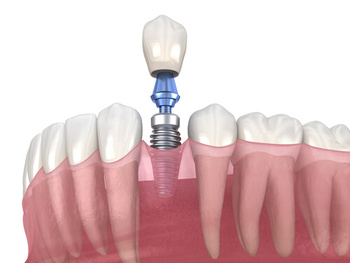When considering dental implants, patients often weigh options between different locations, with Manila, the Philippines, and various cities in Australia being prominent choices. This blog will dive into the details of getting dental implants in both locations, highlighting the advantages of opting for Australian services over those in Manila.
What Are Dental Implants?
Dental implants represent a pivotal advancement in dental care, offering a solution for missing teeth that goes beyond the surface level. They are not just about enhancing your smile but about restoring functionality and maintaining oral health. Let’s dive deeper into dental implants, examining their composition, benefits, and process.
Composition and Types

The Makeup of an Implant
A dental implant is essentially an artificial tooth root, most commonly made from titanium, a material known for its strength and biocompatibility. This root-like structure is designed to integrate seamlessly with the natural bone, creating a sturdy foundation for the replacement tooth.
Types of Implants
Implants can vary depending on the patient’s needs. The most common is the single dental implant, ideal for replacing one missing tooth. Patients might opt for implant-supported bridges or dentures for multiple missing teeth, which offer a more comprehensive solution.
The Dental Implant Process
Initial Assessment
The journey towards getting dental implants begins with a thorough dental assessment. This involves examining the patient’s oral health and jawbone density and discussing medical history to ensure suitability for the procedure.
Surgical Procedure
The implant procedure is a surgical process involving the placement of the implant into the jawbone. In cases where the bone density is insufficient, bone grafting might be necessary to provide a solid foundation for the implant.
Osseointegration
A critical phase in the implant process is osseointegration, where the implant integrates with the bone. This period allows the artificial root to become a part of the jaw, ensuring the implant’s stability.
Attaching the Prosthesis
Once osseointegration is complete, attaching the artificial tooth or crown is the next step. This is meticulously crafted to match the patient’s natural teeth in colour and shape, ensuring a natural and aesthetically pleasing result.
Benefits of Dental Implants
Improved Oral Functionality
Dental implants restore the ability to chew and speak easily, much like natural teeth. They eliminate the discomfort and limitations often associated with dentures.
Aesthetic and Health Benefits
Implants not only improve the appearance of one’s smile but also help in preserving the facial structure. They prevent bone deterioration that can occur with missing teeth, thereby maintaining the integrity of the facial features.
Longevity and Reliability
Unlike other dental procedures, dental implants offer a long-term solution. Proper care can last a lifetime, making them a worthwhile investment in oral health.
In summary, dental implants are a comprehensive solution for missing teeth, offering benefits beyond aesthetics. They involve a detailed and meticulous process, requiring skilled implant dentists and high-quality materials. Whether it’s a single dental implant or a full dental implant procedure, the focus is restoring the tooth and the quality of life that comes with a healthy, functional smile.
Why Choose Australia Over Manila for Dental Implants?
Opting for dental implants is a significant decision, and the choice of location can greatly influence the outcome. Here, we explore in greater depth why Australia is preferred over Manila for this crucial dental procedure.
Cutting-edge Technology and Innovation
Technological Superiority
Australian dental implant clinics are at the forefront of incorporating state-of-the-art technology. They employ advanced imaging and surgical techniques, ensuring precision in implant placement and reducing the risk of complications.
Innovation in Procedures
Australia is known for embracing innovative practices in implant dentistry. From minimally invasive surgical procedures to using modern materials for artificial tooth roots, Australian clinics often lead the way in adopting new and effective treatment methods.
Uncompromising Quality Standards
Regulatory Excellence
Australia’s dental sector is governed by rigorous standards set by bodies like the Australian Dental Association. These standards ensure that every dental implant procedure meets high levels of safety and quality, which might need to be more consistently enforced in Manila.
Quality of Care
Australian dental professionals are renowned for their meticulous approach to patient care. Every aspect of the patient’s journey is managed with utmost attention to detail, from the initial consultation to the post-procedure follow-up.
Expertise of Dentists
Highly Qualified Professionals
The level of expertise of an implant dentist from Australia is notable. Many have undergone extensive training in implantology, ensuring they are well-equipped to handle complex cases.
Continuous Professional Development
Australian dental professionals are committed to continuous learning and professional development. This commitment ensures they stay abreast of the latest advancements in implant dentistry, benefiting their patients.
Material and Equipment Quality
Superior Materials
The materials used in Australian clinics, such as titanium for implants, are often of a higher grade, adhering to international standards. This leads to better outcomes in terms of durability and aesthetic appeal.
State-of-the-Art Equipment
Australian dental clinics invest in high-quality equipment, enhancing the efficiency and effectiveness of dental implant procedures. This investment is a testament to their commitment to providing the best care.
Comprehensive Aftercare
Follow-Up Care
Australian clinics excel in providing comprehensive aftercare, a critical aspect of successful dental implant procedures. Regular check-ups and maintenance services are part of the package, ensuring the longevity of the implants.
Patient Education
Patients are also educated about the care and maintenance of their implants, empowering them to play an active role in their oral health.
When comparing the options for dental implants, the choice between Manila and Australia involves considering various factors such as technological advancement, quality standards, expertise, and aftercare. While Manila might offer more affordable options, the advanced technology, stringent standards, and high level of expertise available in Australian clinics often make them preferable for those seeking quality and reliability in their dental care. This consideration is particularly crucial for complex procedures like dental implants, where the quality of the outcome can significantly impact a patient’s quality of life.

Drawbacks of Dental Tourism
Dental tourism, the practice of travelling abroad for affordable dental treatments, has recently gained popularity. While destinations like Manila offer lower-cost dental services, including implants, several critical drawbacks exist. Let’s explore these challenges to understand why choosing a local option like Australia might be more beneficial in the long run.
Quality and Safety Concerns
Inconsistent Standards
One of the primary concerns with dental tourism is the variability in quality and safety standards. Unlike Australian dental clinics, which adhere to stringent guidelines set by the Australian Dental Association, the standards in other countries may not be as rigorous or consistently enforced.
Risk of Complications
The risk of complications post-surgery is a significant concern in dental tourism. Differences in surgical procedures, materials used, and post-operative care can lead to issues like implant rejection or infection.
Communication and Cultural Barriers
Language Challenges
Communication barriers can pose significant challenges in understanding the nuances of the treatment plan, risks, and aftercare instructions, potentially leading to misunderstandings and suboptimal outcomes.
Cultural Differences
Cultural differences also impact the patient experience. The approach to patient care and interactions in a foreign country may differ significantly from what Australian patients are accustomed to, potentially affecting comfort and satisfaction.
Legal and Ethical Implications
Legal Recourse
In cases of malpractice or unsatisfactory outcomes, patients might find it challenging to seek legal recourse in a foreign country due to different legal systems and consumer protection laws.
Ethical Considerations
Ethical concerns also arise in dental tourism. Practices in some countries may not align with Australian ethical standards, raising questions about the source and quality of materials used in treatments like implants.
Long-Term Care and Follow-Up
Difficulty in Continuity of Care
Post-treatment care is crucial for dental implants. However, in the case of dental tourism, patients often return home soon after the procedure, making it difficult to manage any complications or necessary follow-up treatments.
Lack of Aftercare Support
More readily available aftercare and support can lead to complications being addressed late or not at all, potentially compromising the success of the treatment.
Financial Implications
Hidden Costs
While the upfront cost of dental procedures may be lower abroad, there are often hidden costs, such as travel, accommodation, and potential follow-up treatments back home, which can add up.
Insurance Coverage
Dental treatments performed overseas may not be covered by Australian health insurance plans, leading to additional financial burdens in case of complications or the need for corrective procedures.
Cost Considerations
While it’s true that dental implants cost more in Australia than in Manila, the investment can be justified by the higher quality of care and materials used. However, it’s important to consider the long-term benefits and potential risks associated with lower dental implant costs for those looking for affordable dental implants.
Final Thoughts
Choosing the right location for getting dental implants is a significant decision. While Manila offers more affordable options, the advanced technology, stringent standards, and high level of expertise available in Australian clinics make them a preferable choice for many seeking quality and reliability in their dental care.

In conclusion, when it comes to implant dentistry, particularly for complex procedures like bone grafting or full mouth rehabilitation, the advantages of opting for a dental implant clinic in Australia over Manila are considerable. It’s about balancing cost with quality, safety, and long-term dental health.
At Glenferrie Dental, we understand the importance of a comprehensive approach to dental care. From the initial consultation to the final follow-up, our dedicated team ensures every step of your dental implant journey is managed with utmost care and precision. We pride ourselves on offering personalised treatments, ensuring that each patient receives care tailored to their needs.
If you’re considering dental implants and want to discuss your options with experts who care, don’t hesitate to contact Glenferrie Dental. Contact Dentist Hawthorn at (03) 9818 1930 for a consultation where we can address all your concerns and outline a treatment plan suited to your unique needs. Your journey towards a brighter, healthier smile is just a phone call away!
References:
healthline.com/health/dental-and-oral-health/benefits-of-dental-implants
adhf.org.au/who-we-are/about-us/
